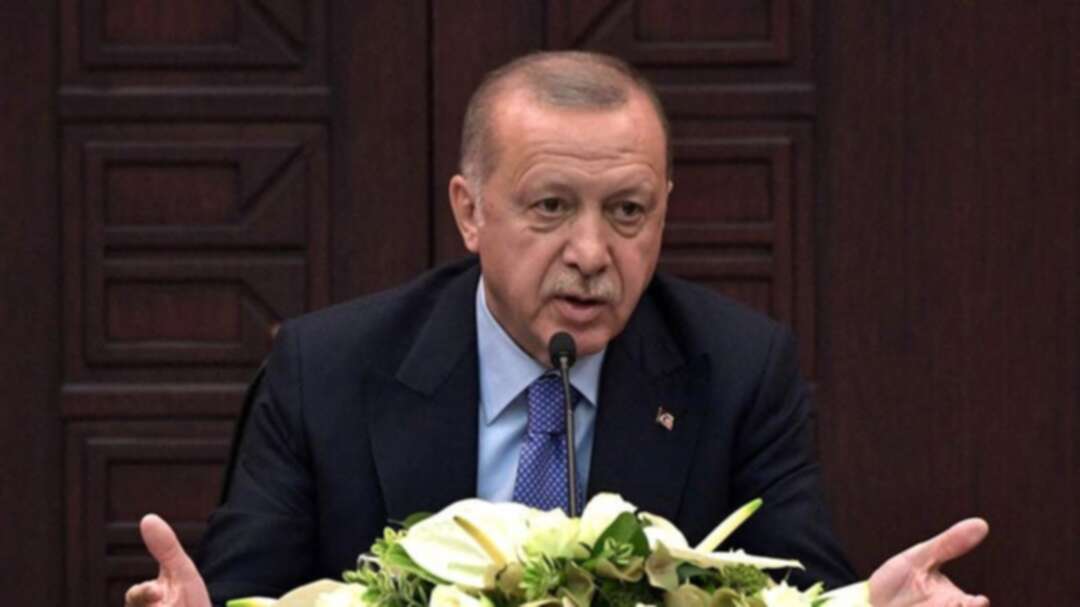-
Turkey’s former FM says Erdogan’s AKP ‘losing popular support’

Turkey’s Justice and Development Party (AKP) is losing popular support in the country, former Turkish Foreign Minister Yasar Yakis told Al Arabiya, as a result of a “17-year period of staying in power” and “mistakes made in foreign policy and the economy.”
In an interview with Al Arabiya, Yakis discussed former premier and party member Ahmet Davutoglu’s resignation, and said that “Davutoglu did not wait for the party to expel him following his statements against the party. He refused to stay despite
Former Prime Minister Davutoglu announced his resignation from Erdogan’s ruling party on September 13, and said that he has plans to form a new political movement.
He has recently been critical of Erdogan’s policies, especially concerning freedom of expression, and was the second key AKP figure to resign from the party after Ali Babacan - a former deputy prime minister and economy minister, who in July also announced plans for a new party.
“Davutoglu and Babacan are opposed to the deteriorating economic and democratic conditions, as well as the
Yakis, who was expelled from Erdogan’s ruling party for rejecting the president’s policies in the Middle East, said that early elections in Turkey “may be a possibility if Erdogan could estimate the losses his party will face in the 2023 elections.”
The AKP ordered a re-run of the Istanbul mayoral vote on May 6 following the defeat of Erdogan’s party, citing what they say are irregularities that affected the outcome.
The main opposition Republican People’s Party (CHP) won in the capital Ankara and Istanbul for the first time in 25 years in the March 31 local elections, in a major setback for Erdogan, who served as Istanbul’s mayor in the 1990s.
Erdogan’s ruling AKP and its nationalist MHP allies have since called for the vote in Istanbul to be re-run. The parties have also filed appeals to annul results in two Istanbul districts, Buyukcekmece and Maltepe, over the same claims.
“The decision to hold early elections in Turkey goes back to Erdogan. If he decides that his AKP party will face more losses during the elections in 2023, then he will resort to holding early elections.
The former minister also criticized the dismissal of three Kurdish mayors in the country, saying that “replacing them with trusted officials is against the democratic principles that the AKP used to cherish in the early stages of its rule.”
He added that when the AKP was established in 2001, “We preferred to have a transfer of power take place through local authorities, but what the party is doing now is the opposite of what was promoted in its early years.”
Intervening in Syria
Turkey’s intervention in Syria was “wrong from the very first day,” Yakis said, adding that, “Turkey should not get involved in Syria’s internal affairs.”
Turkey has been heavily involved in the Syrian civil war since 2016. The war in Syria has killed more than 370,000 people and displaced millions since it started in 2011 with a brutal crackdown on anti-government protests.
“It should have limited its participation to the humanitarian aspects of the crisis. Sending forces to a neighboring country is unacceptable under international law,” he added.
Turkey could have promoted its national interests in Syria, the former minister said, by avoiding direct military intervention.
You May Also Like
Popular Posts
Caricature
BENEFIT Sponsors BuildHer...
- April 23, 2025
BENEFIT, the Kingdom’s innovator and leading company in Fintech and electronic financial transactions service, has sponsored the BuildHer CityHack 2025 Hackathon, a two-day event spearheaded by the College of Engineering and Technology at the Royal University for Women (RUW).
Aimed at secondary school students, the event brought together a distinguished group of academic professionals and technology experts to mentor and inspire young participants.
More than 100 high school students from across the Kingdom of Bahrain took part in the hackathon, which featured an intensive programme of training workshops and hands-on sessions. These activities were tailored to enhance participants’ critical thinking, collaborative problem-solving, and team-building capabilities, while also encouraging the development of practical and sustainable solutions to contemporary challenges using modern technological tools.
BENEFIT’s Chief Executive Mr. Abdulwahed AlJanahi, commented: “Our support for this educational hackathon reflects our long-term strategic vision to nurture the talents of emerging national youth and empower the next generation of accomplished female leaders in technology. By fostering creativity and innovation, we aim to contribute meaningfully to Bahrain’s comprehensive development goals and align with the aspirations outlined in the Kingdom’s Vision 2030—an ambition in which BENEFIT plays a central role.”
Professor Riyadh Yousif Hamzah, President of the Royal University for Women, commented: “This initiative reflects our commitment to advancing women in STEM fields. We're cultivating a generation of creative, solution-driven female leaders who will drive national development. Our partnership with BENEFIT exemplifies the powerful synergy between academia and private sector in supporting educational innovation.”
Hanan Abdulla Hasan, Senior Manager, PR & Communication at BENEFIT, said: “We are honoured to collaborate with RUW in supporting this remarkable technology-focused event. It highlights our commitment to social responsibility, and our ongoing efforts to enhance the digital and innovation capabilities of young Bahraini women and foster their ability to harness technological tools in the service of a smarter, more sustainable future.”
For his part, Dr. Humam ElAgha, Acting Dean of the College of Engineering and Technology at the University, said: “BuildHer CityHack 2025 embodies our hands-on approach to education. By tackling real-world problems through creative thinking and sustainable solutions, we're preparing women to thrive in the knowledge economy – a cornerstone of the University's vision.”
opinion
Report
ads
Newsletter
Subscribe to our mailing list to get the new updates!






















